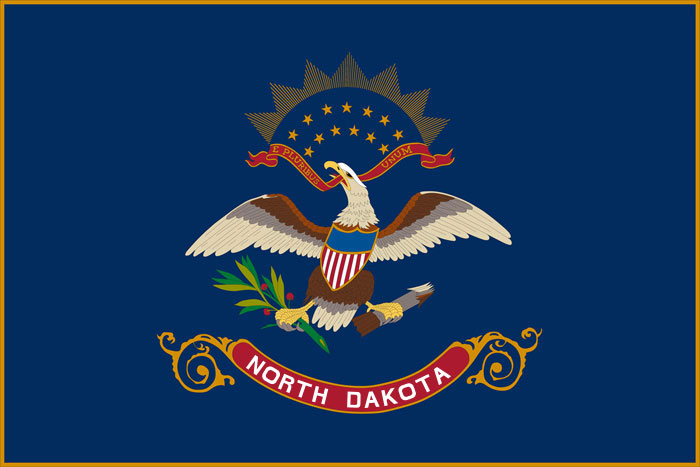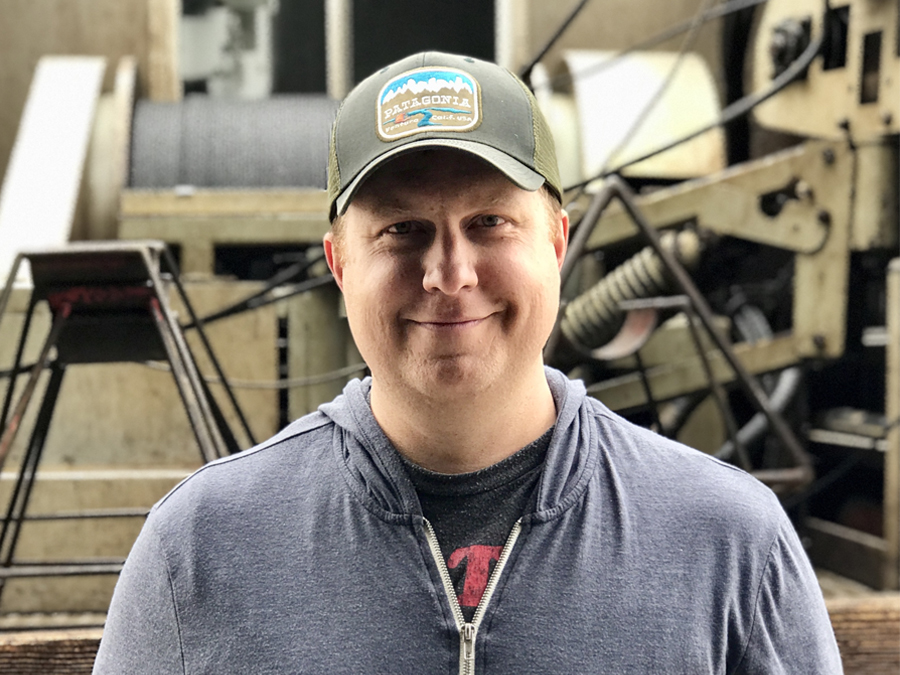Our thanks to Lucas Gjovig, owner of Go Wireline LLC – a highly successful North Dakota-based business, for sharing his thoughts on entrepreneurship.
Please tell us about Go Wireline. What services do you provide?
Go Wireline is an oil field service where tools are run into a well via a truck with a spool of wireline. We use semi-tractors with an extended chassis that has a cab on the back of the truck, reminiscent of a delivery truck or dump truck. On the back of the truck is a continuous spool of stranded wireline with an insulated copper wire running through the center of it. Because the wells in the Bakken on average are 2 miles deep, and then kick off to be 2 miles horizontal,, new drums of wireline are 35,000′ long.
From this line, we can run many different services that have us working on wells from the time when the drilling rig is over the well, to when the well is fracked and all the way to the end of the well’s life when it is plugged and abandoned. We run logging tools that evaluate the integrity of the casing and of the cement behind the casing that protects the water zones. we use explosives to perforate the casing for fracking and production. We use tools to evaluate and cut free pipe that is stuck in a well. Because we work with tools and well conditions that are inherently dangerous, safety of our workers is our primary concern.
When did you start?
My dad Mark Gjovig and his longtime business partner Arlan Arnson ran a wireline company for most of my life. Along with them and six other guys working wireline in Williston, we started Go Wireline in 2011. I was the only one who was not working in the oil field. I was working as a lawyer in Las Vegas doing corporate litigation, much of which at the time revolved around the 2008 market crash that devastated the Las Vegas economy. I was looking for opportunities to start a business. When the change to startup with these guys came up, it was a no brainer.
What was your business’ original mission and how has that evolved?
Our mission was to provide qualify service at the highest level while keeping our people safe. When we started in 2011, Williston was booming. The owners were working nonstop, and we were growing like crazy. There was a constant training mentality that helped keep everyone on their toes. Spanning 2014, we went over 500 days and hundreds of thousands of hours worked without an injury.
Today, the mission is the same, but the dynamics of the market and our business have changed. We are working with equipment that is starting to age as opposed to new equipment. We have guys with lots of experience, and now that we are hiring again after the recent slowdown, we have a lot of guys with very little experience. So, training and communication are important to fight complacency. Quality control and tracking performance through key performance indicators are becoming a bigger issue our customers want to see to confirm he quality of our performance.
Do you prefer to pursue funding or build organically, and why?
We borrowed money locally to get our business off the ground. After that, we strictly built organically and out of cash. We have a fiercely independent group of owners that did not want to be beholden to anyone. During the boom, lenders and investors were cold calling looking for opportunities to lend money or buy in. We chose to go our own way, and grew quickly but measured against the risk of a downturn. When the price of oil crashed, we saw a lot of service companies that grew big suffer under heavy debt loads. Some were in violation of their loan covenants. Some filed bankruptcy. We were able to weather the storm and kept our core group of employees intact and buy some new equipment at a discount, which let us hit the ground running when the market picked back up.
What would you say is the single most influential factor in your business’ success?
All our owners are local and involved in the business. From the beginning, we agreed that to keep your stake in the business you had to work in some capacity, as we recognized that each of us was bringing something unique to the table that we needed for the business to reach its fullest potential. Now that we are established, we might not need to have the owners work, but it continues to add value.
For many other oil field companies working in the Bakken, you hear a common theme when there is a question: we need to call the home office. For us, when we need to decide, there is no need to call anyone. We are together almost every day and can decide. This allows us to move fast and flexibly, which has been helpful in recruiting, dealing with customers and responding to market conditions.
What key factors did you consider when determining your business location?
Williston was where all of us who started the company were based out of at the beginning, and it was where the action was. After about two years, we took a chance and opened a second shop in Dickinson, as we felt we were not seeing as much work coming from the southern part of the Bakken region. This has ended up being a good call, as opening in Dickinson did help us capture work out to the southern part of the Bakken and cover more work in the areas around Watford City which was the busiest area through the slowdown.
What are the three smartest decision you’ve made with your business?
All our field employees started working at the bottom. By the time they reach our highest-level position, running crews and operating tools downhole, they have an intimate knowledge of our trucks, equipment and the dynamics of what is happening outside the truck. When the leader of your crew knows every aspect of the job, he can more quickly identify and prevent problems. When they have a problem in the field and call in, the manager has the knowledge to help them troubleshoot,, or knows who to call to get help.
Have good relationships with your key vendors. We have a few vendors that are key to the operations of our business. Some of the relationships started many years before we started Go Wireline, so forming those bonds for Go Wireline were easy. But we have made a few good decision finding new vendors that moved into the region serving other areas of our business. For example, we utilize cranes in our business, but they are ancillary to the work we do, so we rely heavily on third parties to service them. A few years ago, we had a crane mechanic make a cold call at our office. One of the owners heard him talking to our receptionist and told him not to go anywhere until we all met him and knew what he could do. He started talking care of a few things for us, and as it become clear that he was a good guy and new what he was doing, be become one of our closest vendors, we were his second customer when it was just him and a service truck. Now he has a group of employees and a big shop, but when we call him in the middle of the night with an issues, he picks up the phone, In our business, you need vendors that will answer the phone in the middle of the night.
What is the biggest mistake you’ve made as an entrepreneur?
It might not have been an entrepreneurial mistake, but in 2006 I should not have bought a house in Las Vegas. I sold the house this year for a loss. In 2006, people I thought were pretty smart were telling me real estate was still a ‘sure thing.” Then 2008 happened.
Click here to learn about Economic Development in Williston, North Dakota.
 An official website of the State of North Dakota
An official website of the State of North Dakota
